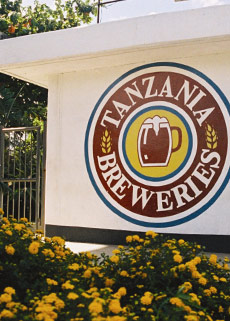A new beer war in the offing?
Is a contract still worth the paper it is written on? Clever lawyers would tell you: “no”. Especially if the contract honours a gentlemen’s agreement not to bash each other’s heads in.
If you will, this is what the beer business in Africa comes down to: setting up anti-competitive cartel arrangements. Brewers play by the rule of “you accept my monopoly and I promise not to barge into yours.”
There was a time, though, at the end of the 1990s, when Kenya’s and Tanzania’s beer markets witnessed intense competition as Diageo (through EABL) and SABMiller (through TBL) strove for market leadership.
Ultimately, SABMiller’s and Diageo’s finance guys had to tell their bosses: “Gentlemen this cannot go on. We are losing money”. So the lawyers were sent out to strike a deal in 2002 which would assign Kenya to EABL (Diageo) and Tanzania to TBL (SABMiller), thus ending a price war that had kept beer prices in the two countries stagnant for five years.
In terms of that agreement, EABL acquired a 20 percent shareholding in TBL, which is 52.83 percent controlled by SABMiller, while SABMiller obtained a 12 percent stake in Kenya Breweries which is 80 percent controlled by EABL.
A key aspect of the agreement was that TBL undertook to brew and distribute EABL’s products under licence in Tanzania and EABL closed down its brewing and distribution operations in Tanzania. SABMiller dismantled its brewery in Kenya.
On the face of it, EABL and SABMiller acquired stakes in each other’s breweries. De facto, however, they re-established monopolies. The cross-shareholding only served as a pawn that would prevent the outbreak of new hostilities.
For a while, all seemed well. EABL ruled the roost in Kenya and TBL ran the show in Tanzania.
However, Tanzania’s Serengeti Breweries, owned by the Mehta family, turned out to be a formidable competitor to TBL.
The Mehtas had bought the former Consolidated Brewery in Dar es Salaam and renamed it Serengeti Breweries. They brew Serengeti Lager, The Kick (a high ABV beer) and a non-alcoholic malt beverage Vitamalt.
Success of their products took them by surprise. Today they brew more than 300,000 hl in Dar es Salaam although the brewery had been designed for 100,000 hl only.
Some five years ago, Serengeti Breweries established a new brewery in Mwanza at Lake Victoria, which has an output of 600,000 hl annually.
Last year, Serengeti started building a brewery in Moshi, which is to go on-steam early next year with a capacity of 500,000 hl.
However, the economic crisis has hit Tanzania too and sales of Serengeti Breweries did not rise as forecasted.
The long and short of it is that Serengeti Breweries must have run into financial difficulties and were forced to look for an outside investor.
Along came EABL, having spotted an opportunity to re-open direct competition with SABMiller in Tanzania.
Whether EABL will buy Serengeti Breweries lock, stock and barrel or just a “substantial interest” as they say in their press release – SABMiller and TBL cried “murder most foul” when EABL gave them notice that they will end their brewing and distribution agreement.
EABL have not said yet whether they will offload their stake in TBL too.
In the light of this, TBL and SABMiller have sought an injunction against EABL via a court application in the UK, pending the commencement of arbitration proceedings if the parties cannot resolve their differences amicably.
Kenya’s beer market is bigger than Tanzania’s. According to the Barth Report, beer production in Kenya was 5.3 million hl in 2008.
Tanzania’s breweries produced 3.9 million hl beer last year, of which 3.0 million hl were brewed by TBL and 900,000 hl by Serengeti Breweries.
TBL has a production capacity of just over 3.4 million hl. It has plants in Dar es Salaam, Mwanza and Arusha and is currently constructing a green field site brewery in Mbeya with a capacity of 400,000 hl, which is expected to be operational by mid 2010.

